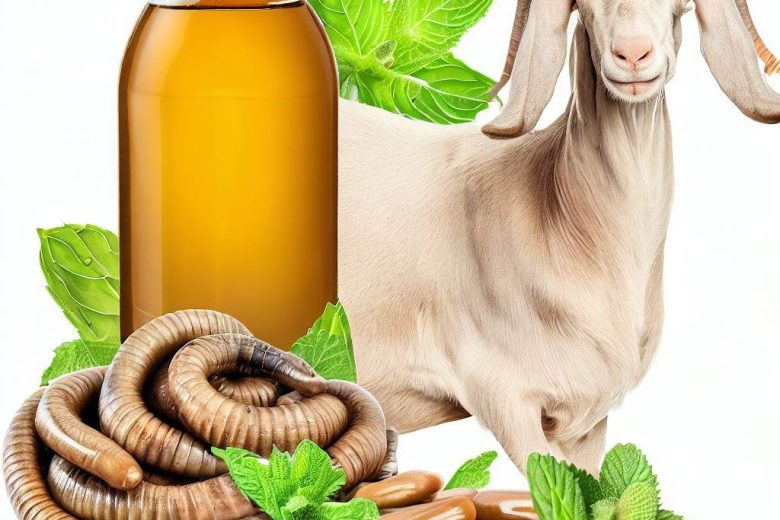Broiler chickens are a common choice for poultry farming due to their rapid growth and high meat yield. However, when you notice your broiler chicken coughing, it can be a cause for concern. Coughing in broiler chickens can indicate underlying health issues that need to be addressed promptly.
Broiler chickens may cough due to various reasons, including infectious diseases, environmental factors, and poor ventilation. Timely identification and treatment of the underlying causes, such as respiratory infections, through veterinary consultation and appropriate medications, along with implementing preventive measures like proper ventilation and biosecurity protocols, are crucial for addressing coughing issues in broiler chickens effectively.
Broiler chickens, known for their rapid growth and meat production, may occasionally experience coughing episodes that can be indicative of underlying health problems. Understanding the causes and appropriate treatments for coughing in broiler chickens is essential for maintaining a healthy flock.
In this article, we will explore the possible causes of coughing in broiler chickens and discuss appropriate treatments.
Why Is My Broiler Chicken Coughing? [Causes and Treatment]
A broiler chicken’s respiratory system plays a vital role in its overall health and well-being. The respiratory system enables oxygen exchange, removes carbon dioxide, and helps regulate body temperature. Healthy lungs are crucial for optimal growth and productivity.
Various respiratory diseases can affect broiler chickens, compromising their respiratory function. These diseases are often contagious and can spread rapidly within a flock if not properly managed.
Causes of Coughing in Broiler Chickens
Coughing in broiler chickens can be attributed to several factors. Understanding these causes is crucial for implementing effective preventive measures and treatments. The following are common causes of coughing in broiler chickens:
Infectious Diseases
Respiratory infections caused by bacteria, viruses, or fungi are a significant cause of coughing in broiler chickens. Common infectious diseases include Infectious Bronchitis, Newcastle Disease, and Avian Influenza. These diseases can be highly contagious and may result in severe respiratory distress if left untreated.
Environmental Factors
Poor environmental conditions, such as high humidity, inadequate ventilation, or exposure to noxious gases, can also lead to coughing in broiler chickens. Dust, ammonia, and other airborne irritants can irritate the respiratory system, causing coughing and respiratory discomfort.
Poor Ventilation
Inadequate ventilation within broiler houses can create an environment conducive to respiratory issues. Poor air circulation and a buildup of moisture can promote the growth of harmful microorganisms and increase the risk of respiratory infections.
Identifying Symptoms of Respiratory Issues
Apart from coughing, broiler chickens with respiratory problems may exhibit other symptoms. These symptoms can help in identifying the underlying issue and determining the appropriate course of action. Common respiratory symptoms in broiler chickens include:
- Sneezing
- Nasal discharge
- Labored breathing
- Wheezing or rattling sounds
Common Respiratory Diseases in Broiler Chickens
Understanding the specific respiratory diseases that commonly affect broiler chickens is crucial for effective diagnosis and treatment. The following are three prevalent respiratory diseases in broiler chickens:
Infectious Bronchitis
Infectious Bronchitis (IB) is a highly contagious viral disease that affects the respiratory system of broiler chickens. It leads to coughing, sneezing, nasal discharge, and reduced feed intake. Vaccination and biosecurity measures are essential for preventing and managing IB.
Newcastle Disease
Newcastle Disease is a viral infection that affects multiple organs, including the respiratory system, in broiler chickens. Symptoms include coughing, sneezing, respiratory distress, and neurological signs. Vaccination and strict biosecurity protocols are critical in controlling Newcastle Disease.
Avian Influenza
Avian Influenza, commonly known as bird flu, is caused by influenza viruses. It can affect broiler chickens and lead to severe respiratory symptoms, including coughing, sneezing, and difficulty breathing. Strict biosecurity and early detection are vital in preventing the spread of Avian Influenza.
Prevention and Management Strategies
Prevention is key to maintaining a healthy flock of broiler chickens. Implementing appropriate prevention and management strategies can significantly reduce the risk of respiratory diseases and associated coughing. Here are some essential strategies:
Biosecurity Measures
Strict biosecurity protocols should be in place to prevent the introduction and spread of infectious agents. Measures may include controlled access, disinfection procedures, and isolation of sick birds.
Proper Vaccination Protocols
Following an effective vaccination schedule, as recommended by veterinarians, is crucial for protecting broiler chickens against common respiratory diseases. Vaccination helps stimulate the birds’ immune system and reduces the severity of infections.
Adequate Ventilation and Housing Conditions
Maintaining proper ventilation within broiler houses is essential for reducing humidity levels, removing noxious gases, and preventing respiratory issues. Proper housing conditions, including sufficient space, clean bedding, and appropriate temperature control, also contribute to respiratory health.
Treatment Options for Coughing Chickens
If you notice a broiler chicken coughing persistently, it is essential to seek veterinary consultation for accurate diagnosis and appropriate treatment. The following treatment options may be recommended:
- Medications and antibiotics to control bacterial infections
- Supportive care, including proper nutrition and hydration
- Isolation of affected birds to prevent disease spread
Importance of Timely Intervention
Timely intervention is crucial when dealing with respiratory issues in broiler chickens. Prompt identification and treatment of respiratory diseases can minimize their impact on flock health and productivity. By addressing the issue promptly, you can prevent further spread of contagious diseases within the flock.
Can respiratory diseases in broiler chickens spread to humans?
Some respiratory diseases in broiler chickens can pose a risk to human health, such as Avian Influenza. Proper handling and biosecurity measures should be followed to minimize the risk of transmission.
How can I improve the ventilation in my broiler house?
Ensure proper air circulation by providing adequate ventilation openings, fans, and vents. Regularly clean and maintain ventilation equipment to optimize airflow.
Are there any natural remedies to alleviate coughing in broiler chickens?
While natural remedies may offer some relief, it is crucial to consult a veterinarian for a proper diagnosis and appropriate treatment. They can recommend specific remedies and supplements if necessary.
Can coughing in broiler chickens be caused by allergies?
Yes, certain allergies or sensitivities to environmental factors can lead to coughing in broiler chickens. Identifying and minimizing exposure to potential allergens can help alleviate symptoms.
How often should broiler chickens be vaccinated against respiratory diseases?
Vaccination protocols may vary depending on the region and specific diseases prevalent in your area. Consult with a veterinarian to determine the appropriate vaccination schedule for your broiler chickens.
In conclusion, understanding the causes, symptoms, and treatments for coughing in broiler chickens is crucial for maintaining their health and well-being. By implementing preventive measures, following vaccination protocols, and seeking timely veterinary care, you can ensure a healthy and productive broiler chicken flock.
Conclusion
Coughing in broiler chickens should not be ignored, as it can indicate underlying respiratory problems. By understanding the causes, symptoms, and appropriate treatments, you can ensure the well-being of your flock. Implement preventive measures, maintain good ventilation, follow vaccination protocols, and seek veterinary assistance when necessary to keep your broiler chickens healthy and productive.




